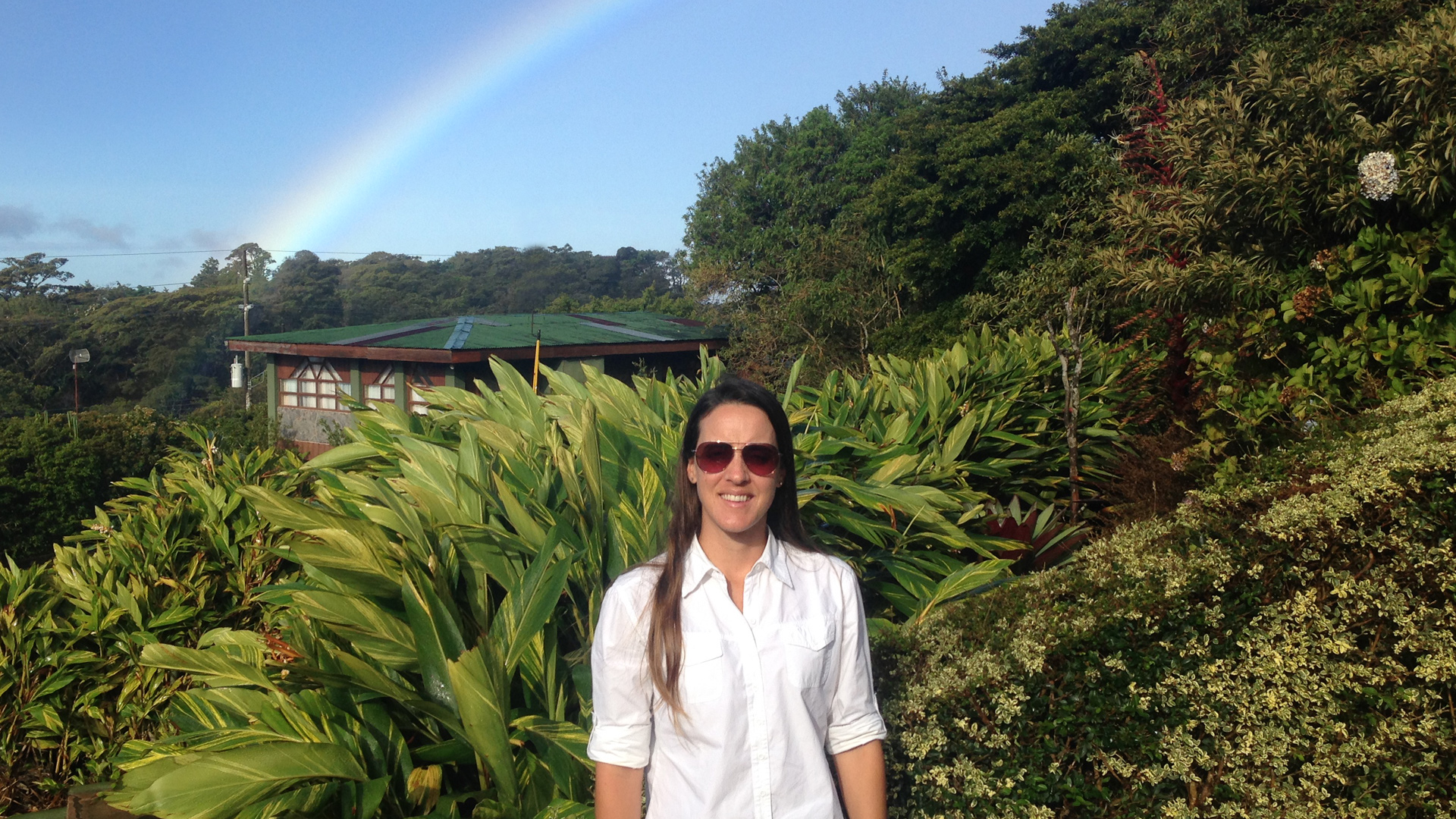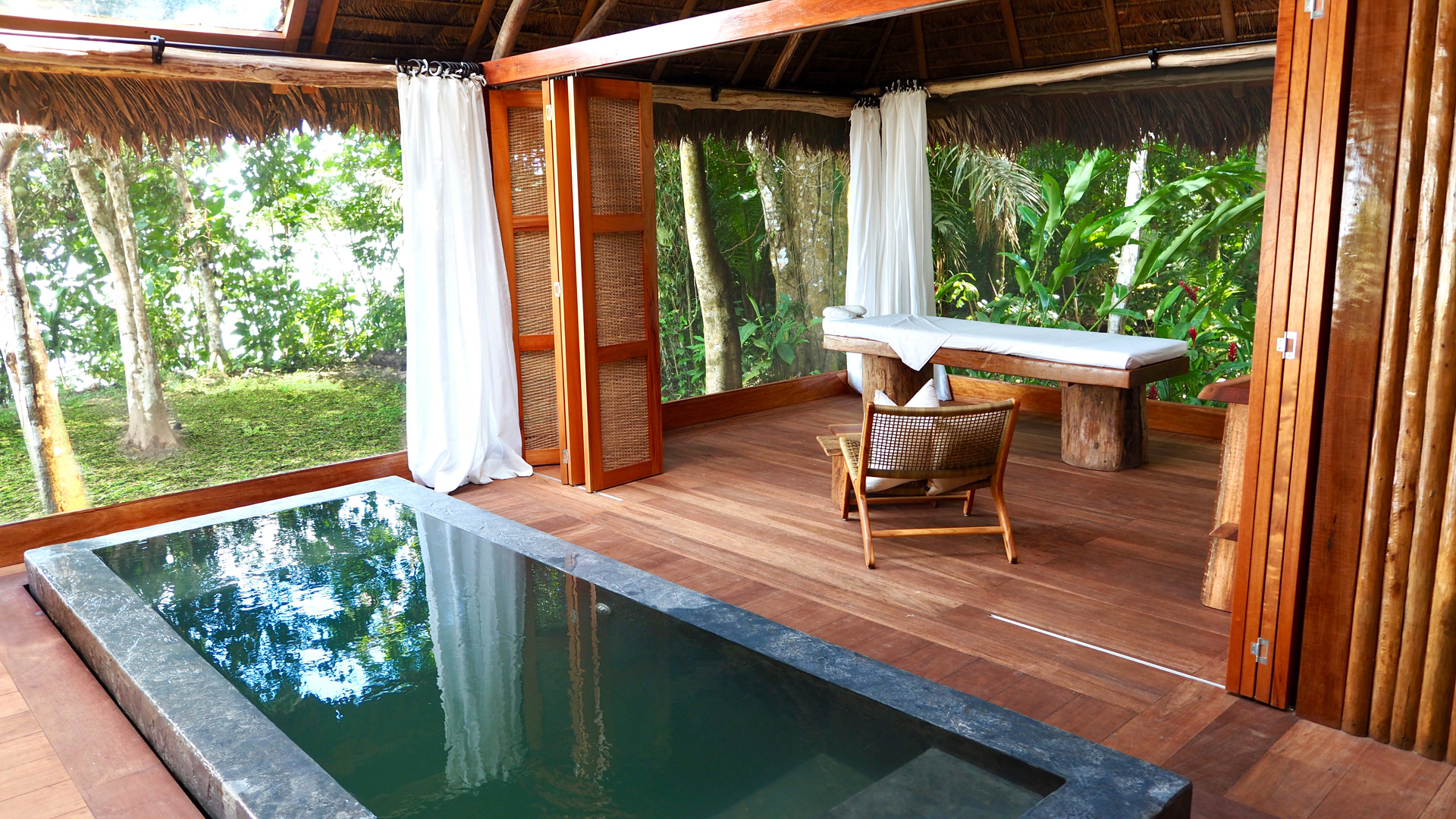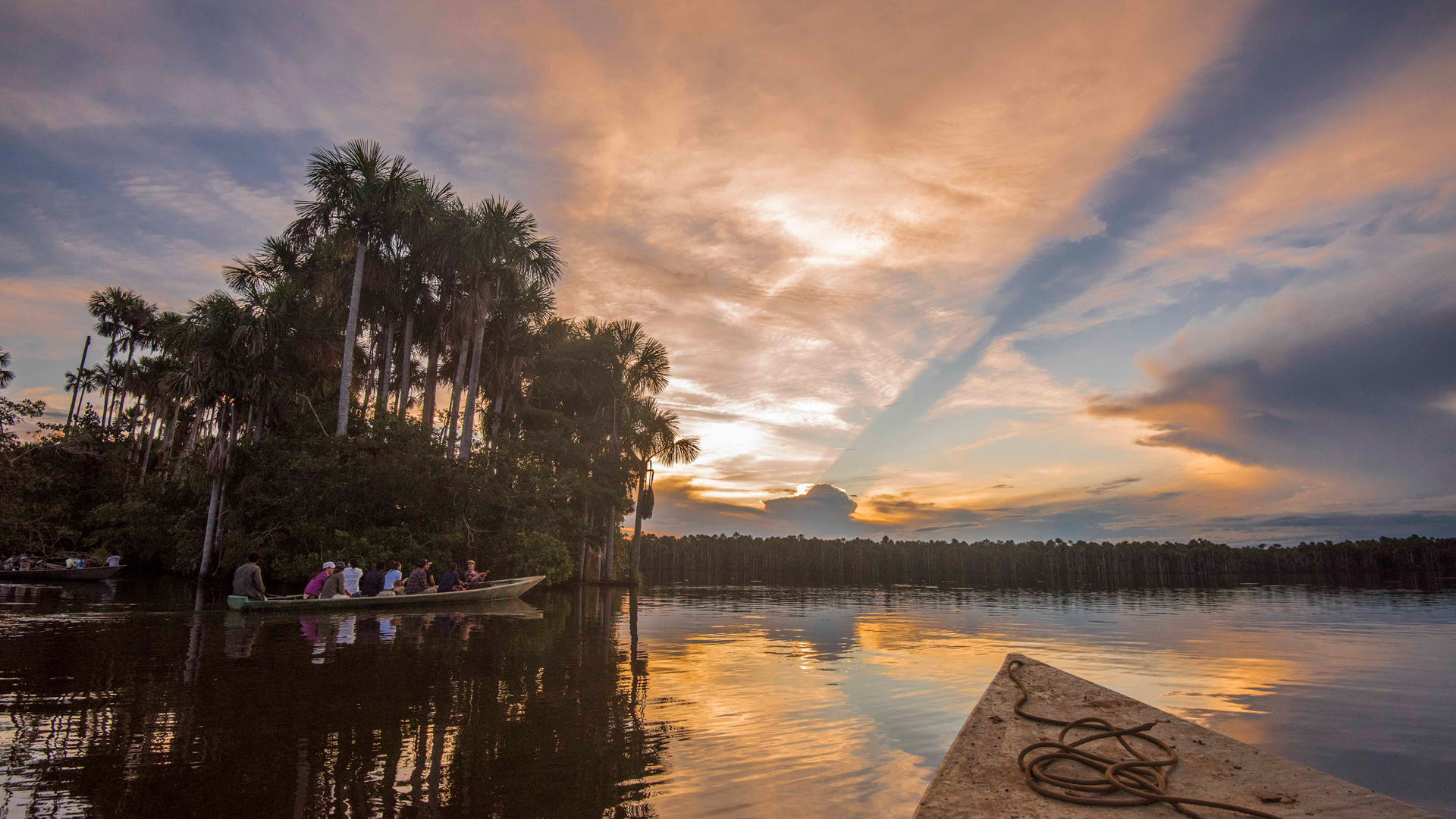Beginning her journey with Inkaterra as an Explorer Guide, Claudia has come very far on her career path and is now Head of Ecotourism, an incredibly important position to hold as part of the Inkaterra family. We interviewed Claudia to delve a little deeper into her frontline knowledge of all things ecotourism and how her work is integral to the company initiatives.
What is ecotourism and why is it so important, especially in our current climate?
Being a leader in Ecotourism includes the study and interpretation of the environment. Through sustainable management of the activities, we can provide excellence in service that also improves the quality of the tourism offered and focuses on caring for the environment and the surrounding communities.
What does a day in the life of the Head of Ecotourism at Inkaterra look like?
Every day is a new day to discover. Discover new excursions, new scoutings, and new guiding technics. It is a day in which to learn from our guides and their actions in order to provide the best travel experience ever.
What made you change from your original role as an Explorer Guide to become Head of Ecotourism? Was it a natural progression for you?
My career path began as a Biologist Ecologist. I applied at Inkaterra to be a Guide eager to be in contact with nature while earning a living. As a guide, I discovered how important the relationship with guests is in order to fulfil their expectations through the power of interpretation skills, knowledge, friendliness and service.
Becoming the Head of Ecotourism opened the doors into designing routes and excursions that would not only provide guides with what they needed to show our incredible surroundings but also have our guests immerse in what travel is; learning, appreciating and giving back while having fun.
What achievements and/or projects have made you most proud in your time with Inkaterra?
Since I have been at Inkaterra we have created new experiences mixing our excursions with our food and beverage department, developed team projects for our guides in order to strengthen their knowledge, put into effect training programs to keep our guide’s skills up to date, and implement internships at Inkaterra properties, as well as abroad. To ensure our travellers’ satisfaction in delivering their expectations to the fullest and beyond.
What ecotourism initiatives have you seen in the industry over the last year that have inspired you most?
The use of technology. It is amazing how this tool is helping not only to promote certain areas (for example apps such as iNaturalist and pl@ntNet), but also influencing guests destination choices.
And last but not least, tourism is moving from non-plastic use towards sustainable food sourcing.
What is your favourite excursion at Inkaterra, and why?
I began my work at Inkaterra almost 12 years ago as a rainforest guide. I visit Lake Sandoval at least 3 times a week so it has a special place in my heart. That is where I met the Giant River otters for the first time, how could I forget!.
In terms of developing your team and your work, what do you see as the future of ecotourism for Inkaterra?
I see an Inkaterra Guide Training Program on the works.
Who, if anyone, inspired you to follow your current career path?
My mother, a biologist herself, instilled my love for nature. She has also been a teacher for over 30 years and therefore, her enthusiasm in explaining how everything works and how even the smallest thing is important, have also played a big part in what I do today; helping travellers to learn about Peru, while taking care and showing respect for our surroundings.
Why is ecotourism important and valuable for travellers to take into account when they choose to go abroad?
I believe it is because nowadays travellers value authentic nature and cultural experiences and this is a key factor in Ecotourism activities.
What top ecotourism tips could you give someone wishing to travel more sustainably?
- Always, always travel with your own water bottle. By refilling yours, you will avoid plastic bottle consumption.
- Reuse your towels and sheets as much as you can.
- Avoid travelling with battery-operated items; such as flashlights and some cameras. Most third world countries do not recycle batteries. If you cannot avoid this, please take them back with you once the battery life is up.
- Trails are there for a reason. Stick to them to avoid harming native flora and fauna.
- Always keep your distance from wildlife. Avoid feeding or interacting with them, they will give you a great sighting all by themselves.
- Research the place you will be visiting. In some cases, hotels provide, for example, umbrellas, boots and flashlights, which if noted will help you from buying unnecessary gear you will only use once.
In your opinion what is the most fascinating aspect of staying (as a guest) with Inkaterra and the company in general?
How we deliver guest experiences. From the first hello, all the way to problem-solving. We take care of our guests, as well as our personnel as if they are our family. This is why you feel the love, the sense of place, as soon as you visit one of our properties.
In terms of ecotourism and sustainability, have you noticed a big change in traveller mindset since you started working with Inkaterra?
Most definitely. When I started, travellers would enjoy themselves through what they saw. Nowadays it is not what they see but how they see it. Is it in the wild? Are there projects that they can be part of to give back to the community? Are we, as Inkaterra, respecting, protecting and learning from our surroundings as well? In this industry the how is more important than the what.
Have you got any tips for someone travelling to Peru for the first time?
I would recommend travellers to read a lot about Peru before coming to the country, its history, its geography, climates, resources, its treasures and customs, and prepare their trip with a good guide.
If you would like to discover more about each of the excursions and experiences that Claudia has mentioned be sure to visit our website www.inkaterra.com.




